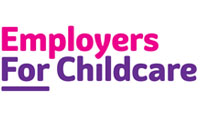Planning needs to turn into progress and a timeline agreed for publication of a new Childcare Strategy for Northern Ireland
A response from the Education Minister Michelle McIlveen to a Stormont Assembly Question has revealed that there is still no timeline in place for the publication of the new Childcare Strategy consultation. While there have been some developments, with the launch of a tender exercise to commission an independent review of childcare services in Northern Ireland, other planned pieces of work are still to get underway. For example, the establishment of a new engagement forum and further focused engagement with key stakeholders. And with the independent review due to run until December, what is clear is that we will not see a consultation on a draft Childcare Strategy in 2022.
It is deeply frustrating that children, parents, childcare providers, employers and those of us who work across the sector are facing a lengthy delay. And there is no imminent prospect of the much needed financial investment directly into the sector that is essential to support parents who are struggling to access and afford the childcare they need, and providers who are questioning their viability amidst rising costs.
For more than a decade we and others across the sector have been calling for a new Childcare Strategy, parents and childcare providers have taken part in research, the sector has been consulted through a Strategic Insight Programme, and an active All Party Group on Early Education and Childcare has been established. But, for the parents who are concerned whether they will be able to pay their childcare this month, or the childcare providers worried that they are making a loss, or the employers unable to recruit and retain the staff they need due to childcare issues – it will feel like we are no further on. In fact, as the cost-of-living-crisis continues to impact, for many it feels like things are getting worse. This is unsustainable and unacceptable.
House of Commons debates childcare funding and affordability
Also this week, an important and welcome debate took place in the House of Commons on childcare funding and affordability in England, with renewed calls from MPs for investment in a childcare system that helps not only to make the lives of families and their children better, but to ensure our economy works. Raising these issues to prominence is critical in securing progress. And the issues raised apply equally, if not more so, in Northern Ireland:
- Rising costs for childcare as a proportion of household income
- Families paying more for childcare than for their mortgage or rent each month
- Parents, particularly mothers, reducing their working hours or being forced out of the workforce as a result – for the first time in 30 years labour force data shows there has been a sustained increase in the number of women who are ‘economically inactive’ due to caring responsibilities
- Employers losing a huge talent pool from the economy, struggling to recruit and retain the staff they need
- Childcare providers facing increased costs for staffing, heating, electricity and food, coupled with a serious shortfall in funding for Government supported places
- Children, particularly those from more disadvantaged backgrounds, at risk of missing out on the educational and social development opportunities afforded through high-quality early education and childcare
- The childcare sector, and those working in it, were thanked for their dedication and commitment, particularly during the challenges of the Covid-19 pandemic.
In important learning to inform planning in Northern Ireland, major concerns were raised about the current funding model in England underpinning the free childcare offer there. Specifically, the inadequate financing of the scheme which forces childcare providers to put up prices for other families, and leaves them unable to invest in staff. But also, the targeting of the scheme which seems to falsely assume that most families don’t need help with their childcare costs before their child turns three. (You can read more about issues with the 30 hours free childcare scheme on our website here). MPs also warned that, in response to recent suggestions from the Government that childcare costs could be reduced through changing childcare ratios, addressing the issue of affordability for parents must not be at the expense of quality of provision, pressure on staff or sustainability of childcare providers.
Action – not just debate – needed in Northern Ireland
This is a debate that needs to be top of the agenda for a functioning Assembly and Executive in Northern Ireland, and taking place here – not just in Westminster. But more than just debate, we need to see action. Action that results in meaningful, positive change – for children, parents, childcare providers, employers and our economy and society as a whole. And for that, we urgently need to see an ambitious, fully-costed and resourced Childcare Strategy for Northern Ireland.
Investment in childcare is an investment that will pay for itself. As was pointed out during the House of Commons debate, the Canadian Government has found that, for every $1 invested in childcare, there was a return of $1.50 to $2.80. As Employers For Childcare has been arguing for years, childcare is critical economic infrastructure that underpins our entire economy, enabling parents to work and to be more productive. And with more than 40% of our workforce in Northern Ireland being parents with dependent children, this is an economic issue that matters to everyone, whether they have children or not.
But as well as the economic argument, we know that investment in our early education and childcare infrastructure is key to tackling inequalities, reducing poverty levels and giving children and young people the best start in life. And we cannot address the ongoing cost-of-living-crisis without solving issues with the affordability of childcare.
It should be inconceivable that, more than two decades after the last Childcare Strategy was published in Northern Ireland, we are still waiting for a new one, and for the investment that families, providers and our economy so desperately needs. Yet here we are. Let’s see a clear timeline now set out for the publication of a new Childcare Strategy, giving at least some hope that much needed support is on its way. And let’s see momentum, building on all the work of the last few years, to put pen to paper and turn planning into progress, and progress into policy – policy that really delivers for families, childcare providers and our economy and society as a whole.






